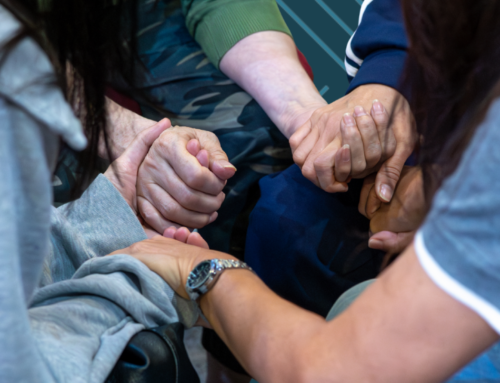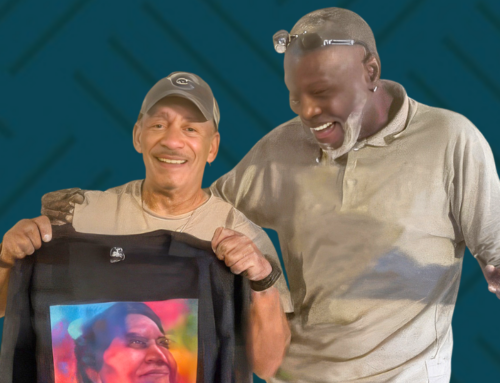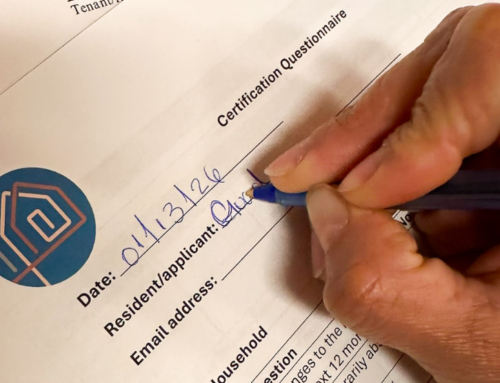Wide open eyes and hearts. Anticipation. Human worth. Poured-out love. Eagerness to give. Each year at our Christmas Store, we see these marvelous qualities expressed in the faces of shoppers and volunteers alike.
It just seems natural, and right, to give free toys to families struggling during the holidays. But we began to wonder if there’s a more helpful way to help.
Years ago, Bob Lupton helped us see contradictions in our Christmas giveaways: our theology of God’s image in humanity suggests dignity and kinship, but our praxis told a different story. Paying closer attention to our families’ demeanor during handouts and afterward, we noticed parents who were ashamed that outsiders supplied gifts for their children. Like all of us, they wanted to meet their own family’s needs. Unable to provide, Dad often preferred to avoid holiday gatherings. Grandma managed a smile while her grandkids tore into gifts from strangers—glad for their excitement, but missing out on having chosen the perfect gift. If a sibling or friend was sponsored by a family that could afford more luxurious presents, there was yet another point of contention.
Together with our generous donors we had good intentions, but the mixed outcomes bothered us.
The Christmas Store is unique—instead of inviting families to endure a chaotic giveaway scene, we all share a holiday celebration where everyone contributes. Parents come to shop, without their children—much like you or I would. There are aisles of new toys donated and subsidized by generous community partners. Parents purchase toys valued at $20 for $5 each. We all like a bargain, and seeing the smiles on the faces of the shoppers as they prepare for Christmas fills our hearts. Mom, Dad and grandparents get to shop for their family, knowing that Na’shai wants nail polish and Andrew needs a pair of headphones, and they don’t have to guess whether a pre-wrapped donated gift will bring joy. This is an opportunity for low-income families to participate in the joy of giving, which includes saving, purchasing, and giving gifts themselves.
The final station in the Christmas Store is a hospitality room offering hot cocoa and homemade cookies. Longtime shoppers and volunteers reconnect, catching up on stories as carols play. I will always remember Katie’s tears of joy; “Thank you so much for inviting me to come shop here, I was so worried this year knowing I couldn’t afford rent, food and gifts for my five kids.”
Even more special, shoppers very often volunteer! Dedicated workers and ministry partners mark their calendars every year for this special day. The Christmas Store is not a perfect system, and we continually tweak our approach. We’ve needed to make major changes in the setup during the Covid-19 pandemic, for instance. But in a season that can be overwhelming and heartbreaking for many, it provides a glimpse of joy as we open our hearts for God’s gifts of love.
—Rebecca Mendoza Nunziato, from our beautifully illustrated book Beyond Our Efforts: A Celebration of Denver Peacemaking, p. 34-35.
*Bob Lupton is a friend and fellow community development practitioner at FCS Urban Ministries in Atlanta. In in 1992 Bob graciously mentored us in his model for holiday giving—which he called “Dignity for Dads.” More recently, he has recounted his experiences and perspectives on holiday giving in Toxic Charity: How Churches and Charities Hurt Those They Help, And How to Reverse It (HarperOne, 2012).









